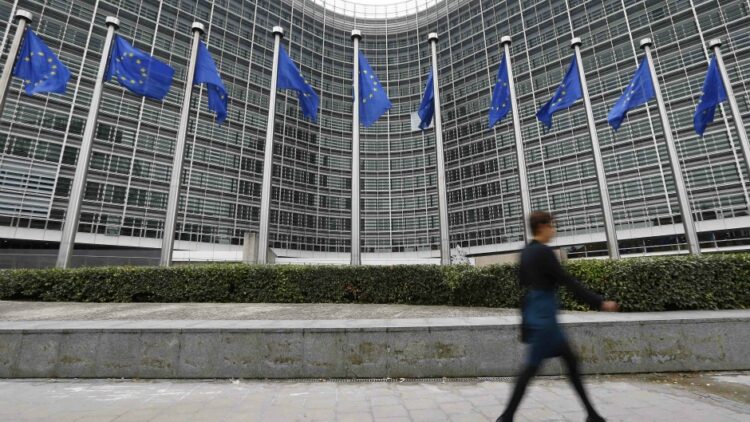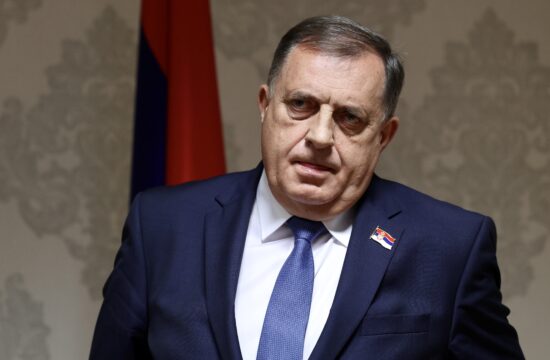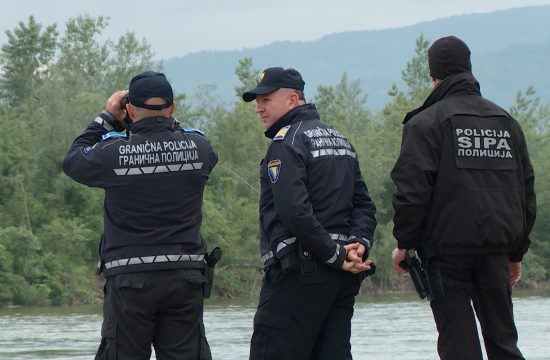
European Union (EU) might reconsider its assistance of migration management in Bosnia and Herzegovina if the local authorities fail to respect the rule of law and human rights in regard with the migration issue, the European Commission's senior official wrote in response to the head of the government in Una-Sana Canton, Bosnia's northwestern region the most affected by the migrant crisis.
“I deeply regret the actions your government has undertaken in the past few months, including threatening to close down reception centres, obstructing the work of our humanitarian partners, forcibly relocating vulnerable persons to the Lipa facility, and disrespecting decisions of the Ministry of Security,” Christian Danielsson, Director-General for Enlargement at the European Commission, wrote in a letter addressed to Mustafa Ruznic, the Una-Sana Canton's (USK) prime minister who warned last month that privately-owned migrant camps located in the canton's urban zones will have to close down.
Ruznic also slammed EU's ambassador in Bosnia Johann Sattler over the migration management in Bosnia and his lack of care for fundamental rights and property of the local population.
“The authorities and citizens of the USK are particularly interested in what did His Excellency do about the implementation of the European Commission's conclusion regarding the migrant crisis, which refers to the obligation of a balanced accommodation of illegal migrants on the whole territory of Bosnia and Herzegovina and not only in the USK, as it used to be, as well as conclusion that all migrant centres set up in the privately-owned facilities must be closed and organised at locations owned by the state,” Ruznic said a month ago.
But, the response from Brussels suggested that the local authorities are to blame for the failed migration management.
“I agree that, despite the substantial resources and expert advice provided by the European Commission, results are still lacking. I am surprised to read that you consider this to be the outcome of inaction on the side of the European Union. Let me be absolutely clear: while we delivered on what we promised, the necessary steps detailed above are for you and the other authorities of Bosnia and Herzegovina to fulfil, notably when it comes to the identification of suitable public properties for additional temporary reception centres,” said Danielsson, expressing “full confidence” in ambassador Sattler's actions as well as the actions of Mr Nino Hartl, the senior expert on migrations deployed through EU assistance.
The EC's official told Ruznic that he had “used the conclusions of the July 2019 meeting” to justify attempts to close down the temporary centres in Bira and Miral, which are privately owned facilities.
“Let me recall that these conclusions called for the replacement of accommodation in privately owned premises by accommodation in publicly owned buildings. In the absence of sufficient capacity in publicly owned premises, forced closure of Bira and Miral would create an accommodation gap and lead to another humanitarian crisis in autumn and winter this year,” stressed Danielsson.
“The Commission expects the cantonal authorities to respect the domestic legislation and the authority of the competent state institutions, and to facilitate their activities and those of international partners. This is the only way to ensure the security of citizens of your Canton in the current situation. Should this not be the case, the Commission will reconsider its assistance in the area of migration management that Bosnia and Herzegovina and in particular the Una-Sana Canton have been benefiting so far,” he added.
Bosnia is seeing a new migrant wave in the wake of the relaxed coronavirus restriction measures across the region and end of the lockdown. After entering the country's eastern border, the migrants move to the northwest hoping they would cross the border with the European Union and reach their final destinations across Europe. But as Croatia keeps its borders closed for illegal migrants, they are stranded in the towns near the Bosnia-Croatia border, mostly accommodated in a few internationally-funded migrant centres but also occupying public areas in urban zones.





